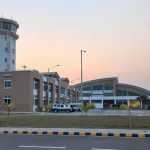
The Persistent Challenges of Telecom Fraud and Human Trafficking Along the China-Myanmar Border
As China prepares for its high-profile “Two Sessions” political meetings in 2025, authorities have taken significant action against cross-border telecom fraud syndicates. In late December, the Wenzhou Municipal Procuratorate indicted 39 members of the Mingjia Telecom cybercrime group, a transnational criminal network operating on the China-Myanmar border. The charges include fraud, illegal detention, and intentional homicide, underscoring the severity of the group’s activities. This prosecution reflects China’s commitment to demonstrating tangible progress against wire fraud, which has been a stated priority since last year’s sessions.
The Mingjia group has been implicated in large-scale fraudulent operations involving billions of yuan. Operating under the protection of armed elements, the group also facilitated illegal casinos, prostitution, and drug trafficking. The October 2023 killing of Chinese nationals attempting to flee the group’s control highlighted the syndicate’s brutality and prompted joint law enforcement actions by China and Myanmar. Thousands of suspects were apprehended, and China declared that fraud parks in northern Myanmar had been dismantled. However, these measures have not eradicated the problem.
Shifting Operations and Evolving Tactics
While China’s crackdown has disrupted some operations, the fraud syndicates have adapted. They are shifting to new locations within Myanmar, especially areas less accessible to Chinese law enforcement. The ongoing civil war and fragmented governance in Myanmar have created fertile ground for such activities, with warlords and local militias exploiting the chaos to shield and profit from criminal enterprises.
The syndicates have also refined their operations. Many now avoid targeting Chinese nationals, focusing instead on victims in Europe and the United States. With the help of artificial intelligence and advanced translation tools, they have overcome language barriers, making their scams more sophisticated and harder to detect.
Moreover, the economic desperation in Myanmar, compounded by international sanctions and the collapse of legitimate economic opportunities, has driven many locals to willingly participate in these illicit activities. Fraud offers higher and relatively safer earnings compared to alternatives like drug trafficking or precarious labor migration.
Root Causes and Broader Implications
The entrenchment of telecom fraud in Myanmar mirrors the socioeconomic and geopolitical complexities of the region. China’s strategic pivot to support the Burmese junta, driven by the need to safeguard its investments, has diluted its commitment to eradicating fraud. This shift has allowed criminal networks to flourish under the protection of local warlords, who use the proceeds to sustain their militias and maintain control.
The global economic downturn, coupled with China’s domestic challenges, has exacerbated the issue. Unemployment in rural China has pushed individuals with prior involvement in fraud to return to these criminal networks, further fueling the cycle.
The Role of International Cooperation
Experts argue that international collaboration is the only viable solution to combatting these transnational crimes effectively. Countries affected by telecom fraud must work together to share intelligence, standardize enforcement mechanisms, and educate their populations about the evolving tactics of fraudsters.
In this context, regional initiatives such as the joint law enforcement operations involving China, Thailand, Myanmar, and other Mekong countries are vital. However, their success depends on the political will to address the root causes of fraud, including economic disparity, governance deficits, and corruption.
The China-Myanmar border remains a stark example of how organized crime thrives amid instability and weak governance. As fraud syndicates adapt and expand their reach, a concerted international effort is essential to dismantle their networks and mitigate the socioeconomic conditions that sustain them. VOA- China
- Health Minister Paudel Highlights Nepal’s Progress and Challenges at UN Health Commission Session
- Nidhi Calls on Party Cadres to Strengthen Nepali Congress Organization
- Lawmaker Sabitri Malla Urges Full Implementation of Women’s Representation in Government
- NATO Chief Warns of China’s “Staggering” Military Build-Up During Japan Visit













Comments